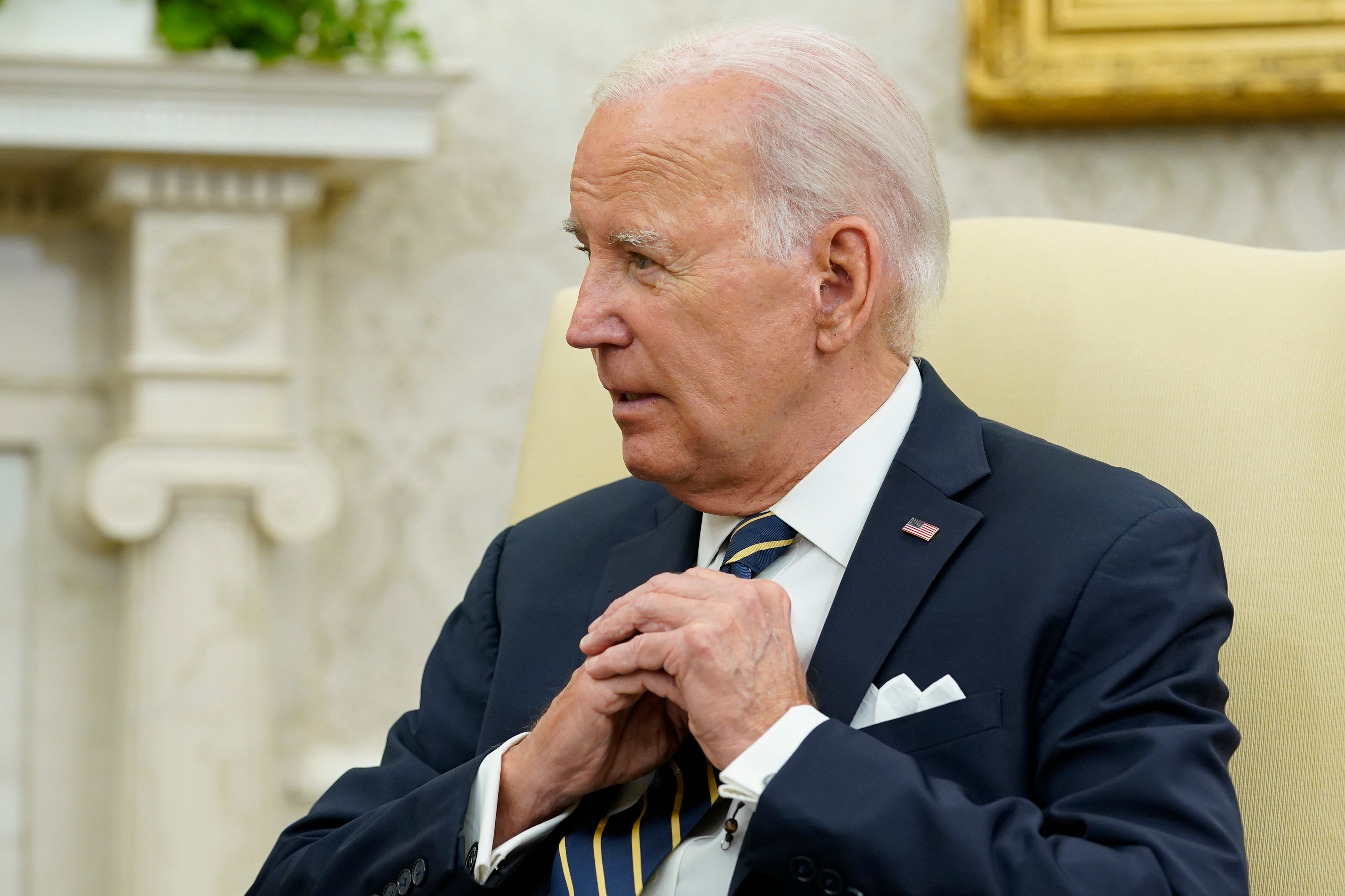Biden's White House is taking on corporate mergers, landlord junk fees and food prices
The Biden administration is proposing new guidelines for corporate mergers, taking steps to disclose the junk fees charged by landlords and launching a crackdown on price-gouging in the food industry

Your support helps us to tell the story
From reproductive rights to climate change to Big Tech, The Independent is on the ground when the story is developing. Whether it's investigating the financials of Elon Musk's pro-Trump PAC or producing our latest documentary, 'The A Word', which shines a light on the American women fighting for reproductive rights, we know how important it is to parse out the facts from the messaging.
At such a critical moment in US history, we need reporters on the ground. Your donation allows us to keep sending journalists to speak to both sides of the story.
The Independent is trusted by Americans across the entire political spectrum. And unlike many other quality news outlets, we choose not to lock Americans out of our reporting and analysis with paywalls. We believe quality journalism should be available to everyone, paid for by those who can afford it.
Your support makes all the difference.The Biden administration on Wednesday proposed new guidelines for corporate mergers, took steps to disclose the junk fees charged by landlords and launched a crackdown on price-gouging in the food industry.
The announcements will be discussed as part of President Joe Biden's scheduled meeting with the White House Competition Council, a group of officials established under a 2021 executive order.
The council has focused on creating more transparency for consumers and finding ways to limit the concentration of industries in ways that the Biden administration says lead to higher prices and hurt the ability of start-ups and small businesses to grow. Republican lawmakers and some business group critics counter that the Democratic president's effort will lead to greater regulatory costs that leave the economy worse off.
The Department of Justice and the Federal Trade Commission are proposing revised guidelines for how they evaluate mergers. Their goal is to provide more clarity on the impact mergers can have on workers and to update the guidance for a digital economy that is shaped by companies such as Apple, Amazon, Alphabet and Meta.
The government first issued its guidance on mergers in 1968. Officials stressed that the new guidance conforms to the laws set by Congress and the precedents of court rulings.
Republican lawmakers have accused FTC Chair Lina Khan of “harassing” Twitter since it was acquired by billionaire Elon Musk. They say her push to break up the concentration of corporate power amounts to government interference in business practices. Khan has said such interventions will enable more competition within the U.S. economy in ways that are positive for consumers, workers and new businesses.
Separately, the government is working with the companies Zillow, Apartments.com and AffordableHousing.com to create a new website that reveals to renters all of the fees they could be charged when signing a lease.
The effort comes from concerns that many renters find themselves surprised by what the administration calls hidden junk fees for background credit checks, paying their rent online or trash collection. The administration's goal is for renters to know how much they're being charged so that they can make better choices.
The Department of Agriculture is partnering with more than two dozen state attorneys general to investigate and sanction price gouging in the food sector. The department is also creating a new liaison for farmers to discuss the patent process regarding seeds.
The White House has said its broader efforts have led to more entrepreneurship. In the wake of the coronavirus pandemic and a historic series of relief packages, there were 10.5 million applications to start new small businesses in 2021 and 2022, the best two years on record.
But the greater degree of government activism has been controversial with business groups, which say that these new companies might struggle to survive and that higher regulatory costs might cause prices to rise.
After the last meeting of the competition council, the U.S. Chamber of Commerce's chief policy officer, Neil Bradley, said, “this Washington-knows-best approach will raise prices for families, lead to fewer choices for consumers, and make our economy less competitive.”